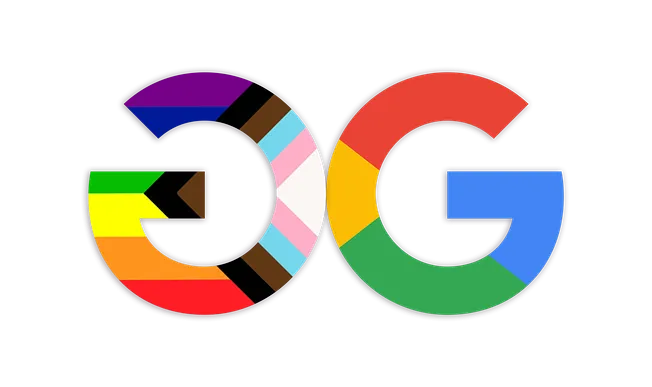It was a display that would have blown even Orwell’s mind: search for images of “Nazis” and Google’s AI chatbot shows you almost exclusively artificially generated black Nazis; search “knights” and you get female, Asian knights; search “popes” and it’s women popes. Ask it to share the Houthi slogan or define a woman, and Google’s new product says that it will not in order to prevent harm. As for whether Hitler or Elon Musk is more dangerous? The AI chatbot says that it is “complex and requires careful consideration.” Ask it the same question about Obama and Hitler and it will tell you the question is “inappropriate and misleading.”
The world has been horrified—and amused—by the extreme ideological bent of Gemini, Google’s much-hyped new AI tool, which the company launched last month.
But Shaun Maguire, who was a partner at Google Ventures, the company’s investment wing, from 2016 until 2019, had a different reaction.
“I was not shocked at all,” he told The Free Press. “When the first Google Gemini photos popped up on my X feed, I thought to myself: Here we go again. And: Of course. Because I know Google well. Google Gemini’s failures revealed how broken Google’s culture is in such a visually obvious way to the world. But what happened was not a one-off incident. It was a symptom of a larger cultural phenomenon that has been taking over the company for years.”
Maguire is one of multiple former Google employees who told The Free Press that the Gemini fiasco stems from a corporate culture that prioritizes the ideology of diversity, equity, and inclusion (DEI) over excellence and good business sense.
These ex-Googlers, as they’re called, said that they were discouraged from hiring white, male employees; that DEI “is part of every single thing” in the company; and that engineers even had to list the “DEI impact” for the tiniest of software fixes. All of them agreed that the Silicon Valley giant entered the artificial intelligence race with an upper hand but has squandered it by cowing to an activist faction in the company that’s more committed to advancing social justice than making world-class products.
In the days after the Gemini debacle, Google’s CEO Sundar Pichai sent a memo to staff, calling the tool’s responses around race “unacceptable.” He went on: “Our mission to organize the world’s information and make it universally accessible and useful is sacrosanct. We’ve always sought to give users helpful, accurate, and unbiased information in our products. That’s why people trust them. This has to be our approach for all our products, including our emerging AI products.”
And earlier this month, Google co-founder Sergey Brin told a room full of entrepreneurs in San Francisco of Gemini: “We haven’t fully understood why it leans left in many cases. . . that’s not our intention.”
But the ex-staffers we spoke to said they know exactly how the technology became so biased.
“The model is just a reflection of the people who trained it,” one former AI researcher at Google Brain, who asked not to be named, told us. “It’s just a series of decisions that humans have made.”

Maguire, who is now a partner at Sequoia Capital, is the most high-profile ex-Googler we spoke to in the wake of the Gemini launch. In the summer of 2016, he joined Google’s investment wing, Google Ventures—an offshoot of the company that managed a multibillion-dollar fund to invest in promising start-ups. By that time, he had already had a hand in building two successful companies from the ground up—one of which he later sold for over $1.5 billion. He had also earned a Joint Meritorious Unit Award from the Secretary of Defense for his work on a technology program to help the United States military in the Afghanistan war.
He said he accepted a job at the company as an investing partner at Google Ventures because he was offered a part-time gig with “a good salary” that allowed him to simultaneously finish up his PhD in quantum gravity at Caltech. Plus, the company’s CEO assured him that within three years, he would be promoted from an investing partner to a general partner, which is among the most senior positions at the firm.
“I was excited about the role, but I was a little wary of Google, which had already been getting a reputation,” he said in a phone interview. “By the time I joined, the word around Silicon Valley was that Google had already lost its way. It was only when I got there that I realized the full extent of it.”
In August 2017, James Damore, then a twentysomething Google software engineer, sent a memo to all employees called “Google’s Ideological Echo Chamber.” Damore argued that the company’s political bias toward the left “has created an ideological echo chamber where some ideas are too sacred to be honestly discussed.” Damore suggested, among other things, that “discriminating just to increase the representation of women in tech” was “misguided and biased.” Within a month, Google fired him for “advancing harmful gender stereotypes.”
Google has long been a progressive company—in 2020, for example, 88 percent of donations by Google employees went to Democrats (almost $5.5 million) while only 12 percent (some $766,000) went to Republicans. But after Damore was ousted, Google’s corporate culture became even more radical, according to Maguire. “Damore’s firing emboldened them to push a more open ideological agenda,” he said.
David Kiferbaum, a Google business manager who worked at the company from 2015 to 2023, said he experienced pressure to recruit minorities after Damore was fired. He said he began hearing things like “We’re really looking for diverse candidates for this role,” which he took to mean “a non-white, a non-hetero” applicant.
“I was like, ‘Whoa, I can’t believe this person is saying this out loud,’ ” he said.
Maguire says at first, he supported initiatives to hire more diverse candidates—until he realized his colleagues were pushing to prioritize applicants’ race and gender over their qualifications for the jobs. He said a diversity working group at Google Ventures, which formed around the second half of 2017, started making “unreasonable demands.”
“The demands included the insistence that senior leaders hire at least two additional female general partners—which is the senior role I was promised I’d get once I reached three years with the company,” Maguire said. “One of those hires, the group demanded, needed to happen within six months. If leadership refused, about a quarter of the firm, or 20 people out of the 80 employees at Google Ventures, threatened to quit.”
Maguire says he believed hiring a female general partner was “a good goal, but they were trying to force a timeline that would ultimately lead to lowering standards. Hiring general partners into a venture firm is a very hard, laborious process, because the positions are so senior and require finding the right fit. The hiring process normally takes anywhere between one to two years.”
But, Maguire said, within a year Ventures’ CEO, “like all of the senior leadership across Google, proved to be spineless in the face of these employee threats. Within a year, he hired a new female general partner, who was really smart but who wasn’t qualified for the job. Because of her lack of experience, she was never treated on the same level as the other general partners, which I believe was ultimately unfair to her.”
“Meanwhile, over the next two years, I started to notice the dynamics of our team change. Instead of highly experienced founders and seasoned investors, young people from minority backgrounds were coming in with virtually no investment experience whatsoever,” Maguire recalled. “In this time, Ventures promoted a 25-year-old black woman to investment partner—the same position I held at the time—who had not yet made a single investment decision in her entire career.”
When asked for comment, a Google Ventures spokesperson told The Free Press: “These claims from Sequoia Capital Partner Shaun Maguire regarding his time at GV from 2016–2019 are baseless and factually inaccurate. GV’s decisions around hiring and promotion are solely based on merit and ability.”
Multiple ex-staffers told us they were expected to express their progressive bona fides in the workplace wherever possible.







